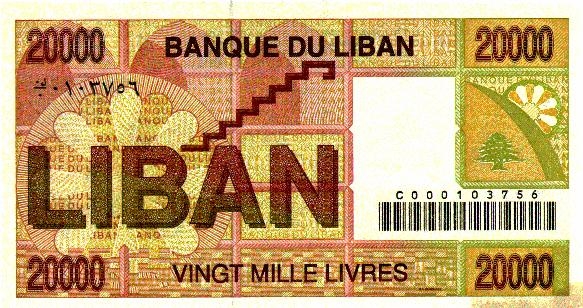It has been a difficult year for the Lebanese economy, buffeted by the ongoing civil war in Syria, with the conflict at times spilling across the border and sparking violence and instability. All of these factors have impacted the country’s economic wellbeing and will continue to do so into 2013.
Estimates by the Banque du Liban released in late November put the rise in GDP at 2% for 2012, down from the 2.8% recorded the previous year. The weak growth was attributed to high political tension and occasional security incidents, factors that discouraged both investors and consumers. The outlook for 2013 is somewhat unclear, depending as it does on an improvement in the situation in Syria, but also on the outcome of Lebanon’s general elections, which are scheduled for the middle of the year.
The elections have the potential to create additional domestic unrest, which could weaken the economy further. Estimates for growth in the coming year range from the 2.5% forecast by the IMF to the more conservative 1.5% from financial consultancy Merrill Lynch.
In a recent research note, ratings agency Moody’s warned that Lebanon faced reduced growth prospects, while high government debt and persistent fiscal and current account deficits were also matters of concern to investors.
However, this was offset by the resilience of domestic banks and the large foreign exchange liquidity in the banking system, though the country is still highly susceptible to external shocks, which could undermine economic development.
While the banking sector may be resilient, many domestic lenders with exposure to the Syrian market had a difficult year. According to a report by Credit Libanais in mid-December, profits of the Syrian subsidiaries of Lebanese banks fell by almost 70% in the first nine months of the year, a result of what the report said were the “heightening uncertainties and risks surrounding Syria’s operating environment”.
Inflation also began to stir in 2012, though estimates of the increase in the cost of living varied. At the end of November, Riad Salameh, the governor of the central bank, forecast inflation would rise to 6% by the end of the year, pushed up by higher fuel and food costs. However, government figures, issued in early December, painted a bleaker picture, putting the increase in the consumer price index at 11%.
Lebanon’s construction industry saw a sharp drop in activity in 2012, with the area covered by permits for building projects falling 13.4% in the first three quarters of the year, down from 12.4m sq meters to 10.7m. The decline almost mirrored the drop in the number of real estate transactions, with an overall 10.6% year-on-year retreat at the end of October.
Another sector affected was tourism, one of the mainstays of the economy, as the conflict in Syria and its overflow effects into Lebanon deterred overseas guests. Arrivals are well down on 2011, with visitor numbers having fallen by 15% or more over the previous year’s figures, and by more than 35% on those of 2010. The sector is the single-largest employer in the economy, one which contributes 10% to GDP, and with little sign that peace will break out in Syria any time soon, it is likely that tourism will be in for another lean year in 2013.
Lebanon’s exports have also been hurt by the conflict, as its land-trade routes to the Middle East and beyond are all but severed. In mid-November, the Ministry of the Economy estimated that outward-bound trade was down by 12%, with most of the downturn due to the reduction in shipping to and through Syria. If this rate of decline is maintained to the end of the year, the fall in exports will have cost Lebanon well over $2.6bn in 2012.
Additionally political instability at home has hindered the economy. The parliament has been unable to pass the budget for this year or the next, and the government is faced with many significant problems, such as cutting the debt-to-GDP ratio. Given Lebanon’s fragmented political landscape, it is unlikely that next year’s elections will give any one party or bloc a clear mandate, meaning drawn-out negotiations to form a coalition will be required and divvy up the cabinet posts, all of which will delay further reforms.
With the regional climate expected to remain unstable into the coming year, prospects for a strong rebound for the Lebanese economy are not strong, at least until well into the second half of 2013.
Oxford Business Group
24 December























































